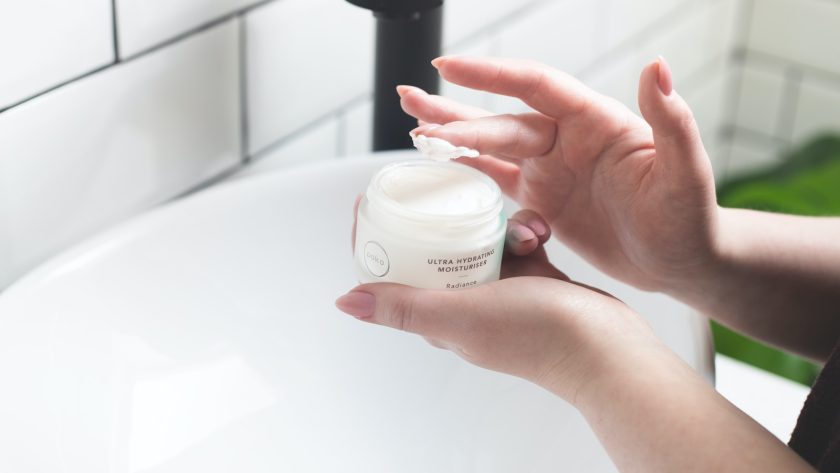It’s safe to say that gluten has a controversial reputation in the food world. One in 10 people in the UK now actively avoid gluten in their diet and in recent years this mounting statistic has paved the way for a boom in the gluten-free food industry. Many restaurants, cafes, and supermarkets have dedicated entire menus and aisles for gluten-free food and produce. The annual market for gluten-free foods is valued at £835 million annually as of the date of writing. The movement is growing rapidly, proving that it has no signs of slowing down.
Numerous people claim that they have seen positive changes after eliminating gluten from the diet. However, registered associate nutritionist (ANutr), Kelly Light says that not all gluten conditions are equal. Coeliac disease, which is an autoimmune disorder that affects approximately 1% of the population, is a form of allergy. Some people may experience the same symptoms as coeliac disease, but no antibodies are produced or damage to their gut lining. Kelly says, “Gluten sensitivity or gluten intolerance” is another term for it and affects approximately 6% of the population.
The symptoms of gluten intolerance can be severe for those with different degrees. These side effects include constipation and cramps, as well as vomiting. Many people find skin problems frustrating, including rashes, bumps, and blisters, which are known as “dermatitis herpetiformis”. This condition can be linked to gluten ingesting, but there are some reports that skin products containing gluten-derived ingredients can cause problems when used topically.
Some coeliacs have reported mild to severe reactions to creams, lotions, and shower gels containing gluten. Alex Gray, actress and TV host, recently shared her experience about her reaction to a cream that contained wheat, barley, and whey proteins. All three contain traces of gluten. Alex said that the rash developed almost immediately. “I applied a new moisturiser to my face and used an eye cream underneath my makeup prior to an event. As the night progressed, my skin began to burn. The texture of my skin changed as the rash developed.”
Alex was diagnosed in 2020 with coeliac disease. She claims that she wasn’t warned by doctors to test skincare products for gluten. This, she says, led to inflamed skin and pustules, as well as swollen eyes and redness. Alex shared her experience on Instagram and received many messages from coeliacs with similar symptoms. She found that others were frustrated by brands failing to clearly list the ingredient on their allergen labels. It can be difficult to find the ingredient on skincare ingredient lists. Alex’s followers were frustrated that brands didn’t clearly list it on their allergen labels.
Alex adds that there are many ingredients and the text is written so poorly and minutely it’s easy to overlook key allergenic ingredients. “I strongly believe that the skincare industry should be required to display allergens in all products, just as the food industry.” Alex’s followers shared their “extremely uncomfortable reactions” to gluten products, which she considers worrying. She concludes that “shopping for skincare shouldn’t be part of the struggle that people with gluten allergies face every single day, especially when it concerns their health and well-being.”
Gluten-free skincare seems to be gaining traction in other corners of the internet, too, with gluten-free creators on TikTok sharing their love for skincare brands like CeraVe, The Ordinary and Glossier – all of which offer gluten-free products. TikTok content creator Allie Wixom says: “I know from my experience that many people react to just touching baked goods or have adverse reactions to gluten in their hair products, so it doesn’t seem like a stretch to try to live a gluten-free lifestyle which includes skincare.” Allie, who was diagnosed six years ago with coeliac disease, claims that cutting out gluten from her skincare regimen has greatly improved her symptoms. She says that she used to experience the “butterfly effect” rash on her face before cutting out gluten from my diet. “The rash disappeared after I eliminated gluten from my diet, but it did not disappear until I completely removed gluten form my skin regimen. My skin is smoother and has a less textured texture since I switched to gluten-free products.” She also explains that it heals quicker.
Fellow TikTok creator and coeliac disease suferrer, Gabrielle Hammond claims that she also suffered skin reactions before moving to an entirely gluten-free routine. She says that she has extremely sensitive skin. Many products caused rashes, skin dryness and acne. “I didn’t know what I was allergic until I spoke with my doctor. We came up with a solution to cut gluten from my top-of-the-line products. Gabrielle claims that things have improved tenfold. I cut gluten out of my skincare routine nine months ago, and my skin is already glowing. It’s finally working and my skin is happy.”
While a few coeliacs stress the importance to avoid gluten in their skincare routines, the majority of evidence seems to be speculative. According to Dr. Nava Greenfield, a consultant dermatologist at theSchweiger Dermatology Group in New York City, gluten is rarely an issue when it is ingested. She explains that gluten is generally processed once it enters the stomach and is detected by the immune system in the mucosa. Our skin can be sensitized to allergens we introduce to it. While a food allergy is different than a skin allergy, Dr Greenfield suggests that some areas might be affected by topical creams. It is best to avoid lip products containing gluten, as it could accidentally be swallowed. Gluten on the skin is safe for coeliac patients.
As to why those with gluten issues may have experienced adverse skin reactions, GP Dr. Ahmed El Muntasar suggests that it may be down to several ingredients causing problems, rather than gluten in isolation. He says that people often believe one ingredient is the cause of all their allergies when in fact, they are multifactorial. Dr Ahmed suggests to use a process called elimination to determine which ingredients are causing the problems. “If you suspect that you may be allergic or sensitive to one ingredient, I recommend keeping your skincare routine the same and removing the product. Then you can see how your skin reacts.”
Although some people believe that eliminating gluten from your skincare regimen could be beneficial, there is no clinical evidence that proves it to be dangerous. “Although gluten in skincare is unlikely to cause a rash, it doesn’t mean that it won’t,” says consultant dermatologist and British Skin Foundation spokesperson Dr. Emma Wedgeworth. Dr. Wedgeworth says that there may be reasons some people absorb certain ingredients differently than you might think. I believe that if someone suffering from coeliac disease reacts to skincare products, it would make sense to eliminate gluten-containing products. It is likely that it is a small percentage of patients.
Precautions are always a good idea when it comes to skin safety. To echo the experts, it is important to be aware of what might be causing flare ups. To get a diagnosis of any skin problems you are experiencing, it is a good idea to visit a professional. Dr. Greenfield recommends that you bring the product you suspect you might have an allergy to to a dermatologist to perform a patch test. It’s always a good idea to seek expert advice when it comes to skin sensitivities.






